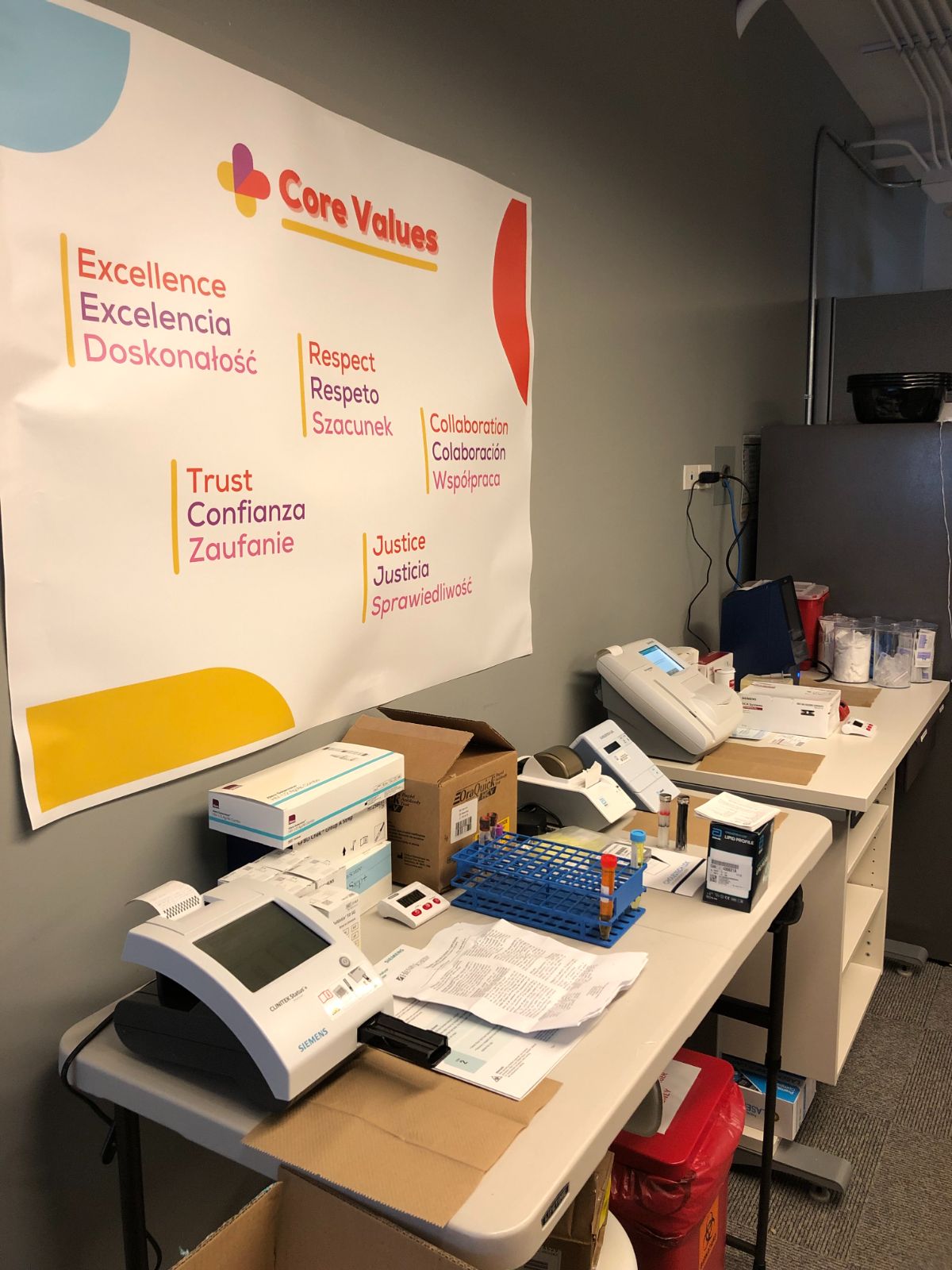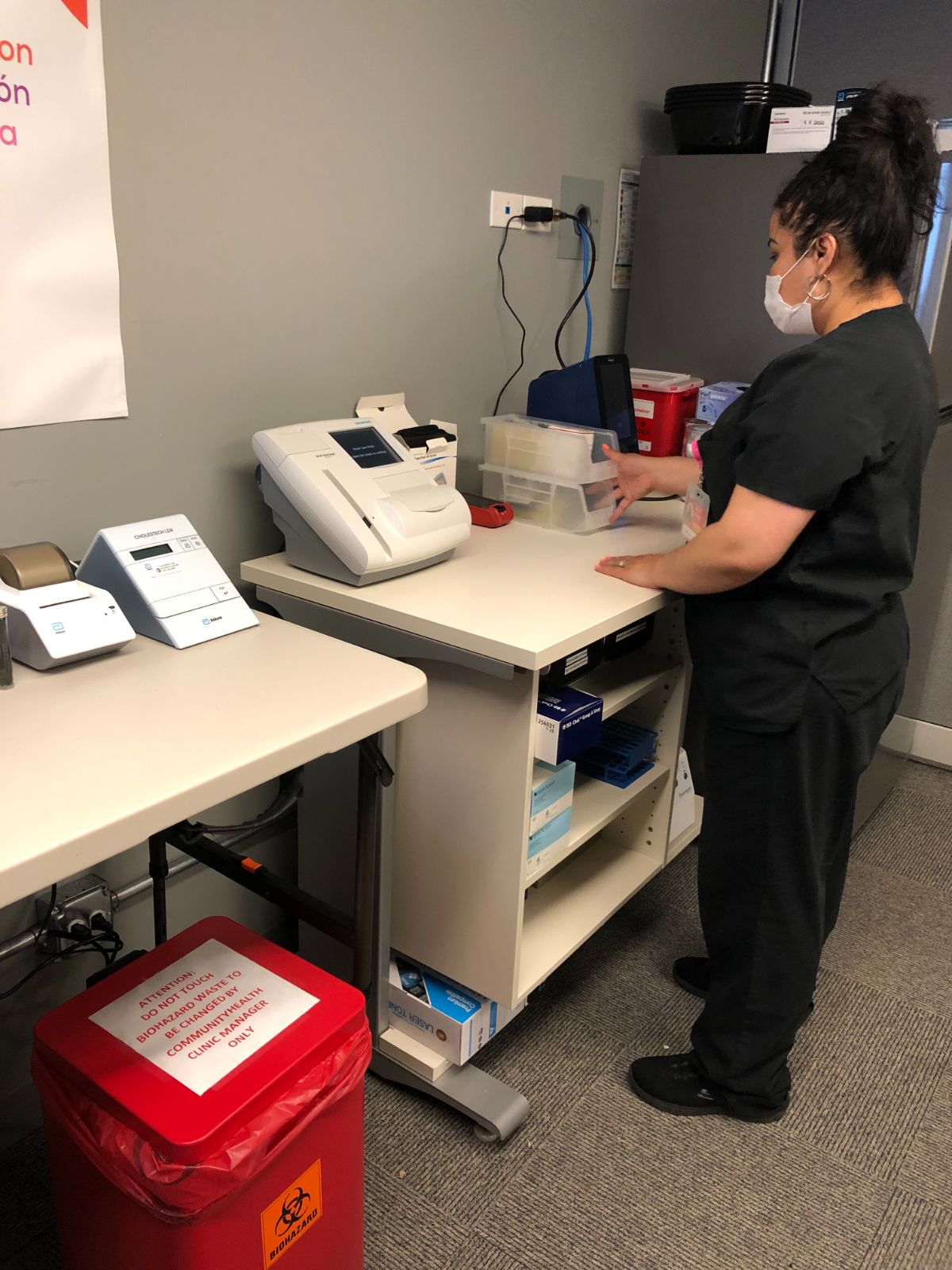Care Beyond the Boulevard (CBB) is a Metro Kansas City nonprofit providing quality healthcare to those experiencing homelessness, poverty and with little or no insurance. The organization has been searching for a laboratory partner for more than three years with no luck.
Thankfully, through a longstanding partnership with Heart to Heart International and with funding from the Wiley Foundation, a new point-of-care laboratory was established in June to serve the more than 1,500 patients served by the organization’s two physical clinics as well as their two mobile units each year. Set to go live in July, the staff at CBB is undergoing training with HHI on the important role of the lab in today’s healthcare system.
“We tried to find a lab partner because we’ve known that this was something important that we were missing for our patients, and we just we’re not able to find a company to collaborate with us until Heart to Heart International,” said Jaynell (KK) Assmann, APRN-C, founder and CEO of Care Beyond the Boulevard.
“The difference that this lab will make is truly life changing for our patients in guiding their treatment. And that’s our mission: provide compassionate and equitable healthcare for everyone. This brings us one step closer.”
Laboratory medicine is a vital part of public health. It is important for detection of disease in individuals and populations. From early detection and diagnosis of disease to individualized treatment plans based on a person’s unique genetic makeup, clinical lab testing is key to improving healthcare quality as well as containing long-term health costs.
For example, the role of lab testing in controlling the cost of diabetes, a chronic disease that affects more than 79 million Americans and is projected to cost the health care system as much as $514 billion by 2025. Three laboratory tests – the fasting glucose test, the glucose tolerance test, and the hemoglobin A1c test – play a critical role in diagnosing pre-diabetes and monitoring the impact of changes in diet and other risk factors. Good control of blood glucose – detected by lab tests – can delay or prevent diabetes complications such as heart disease, stroke, blindness, kidney disease, amputation, and even death. Early detection and management of diabetes through regular lab testing can save tens of thousands of dollars when treating a single patient.



